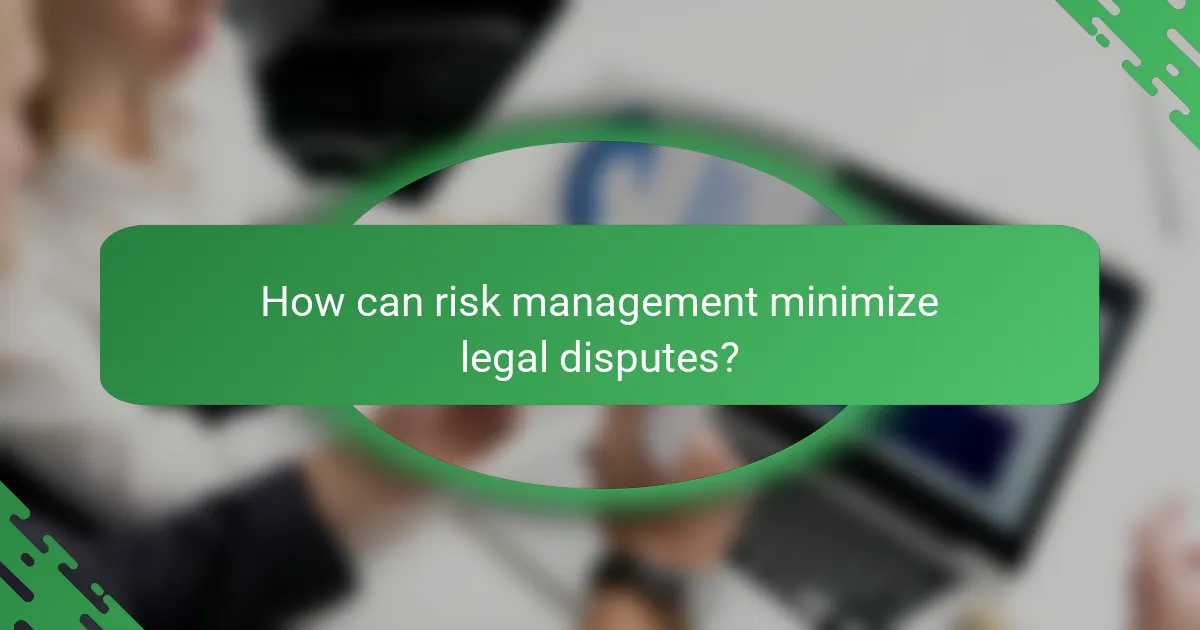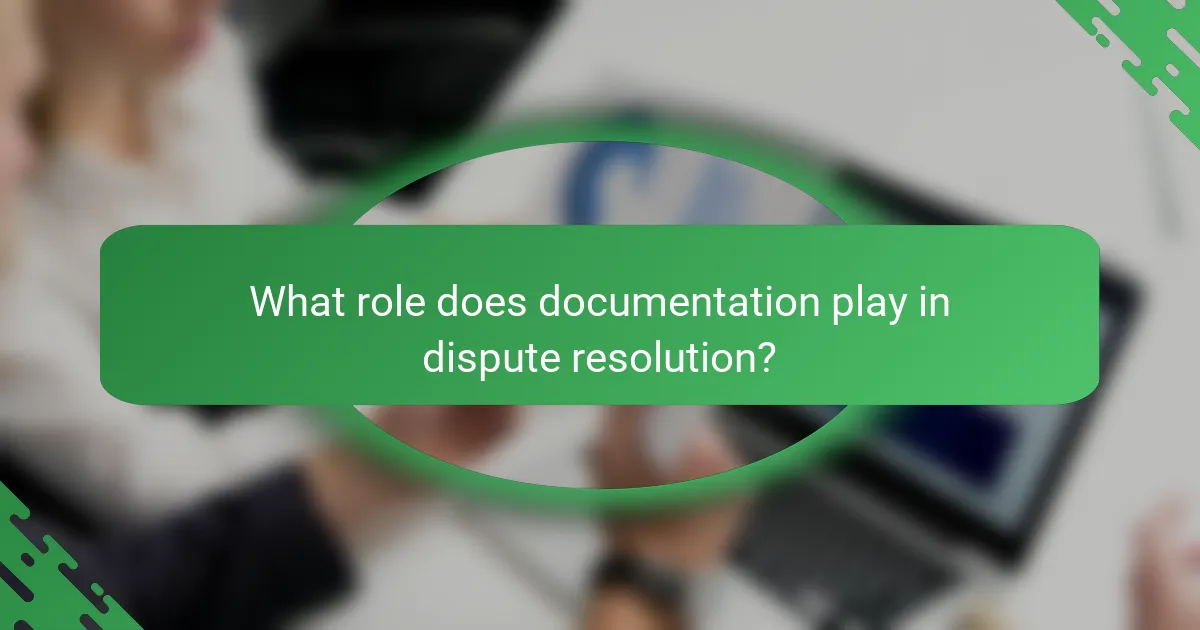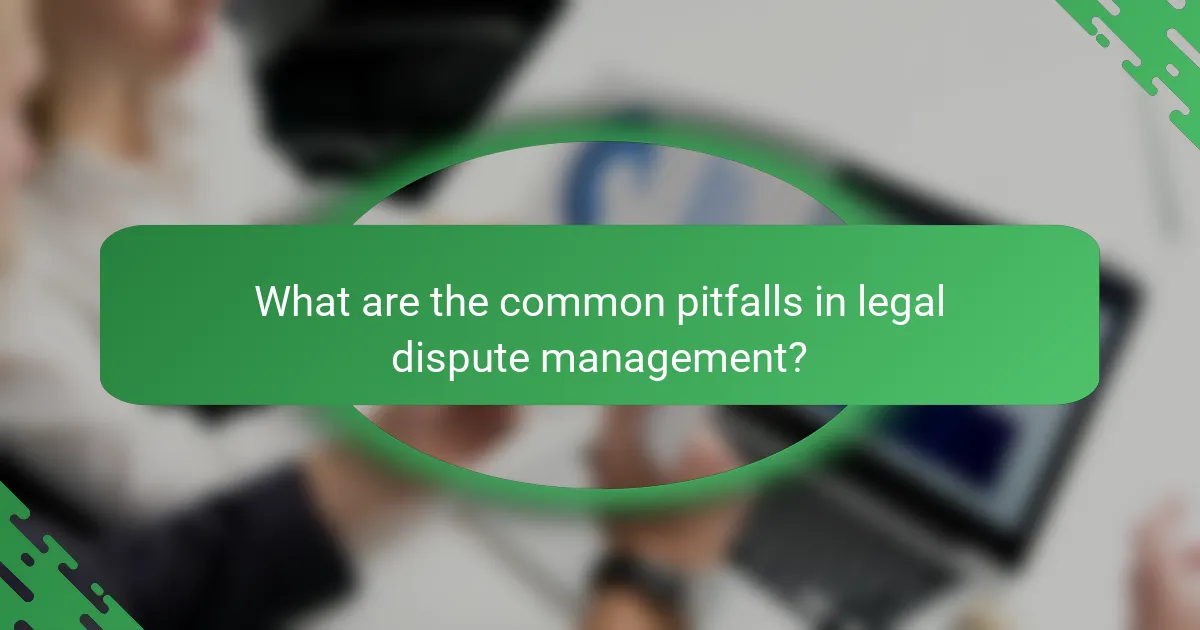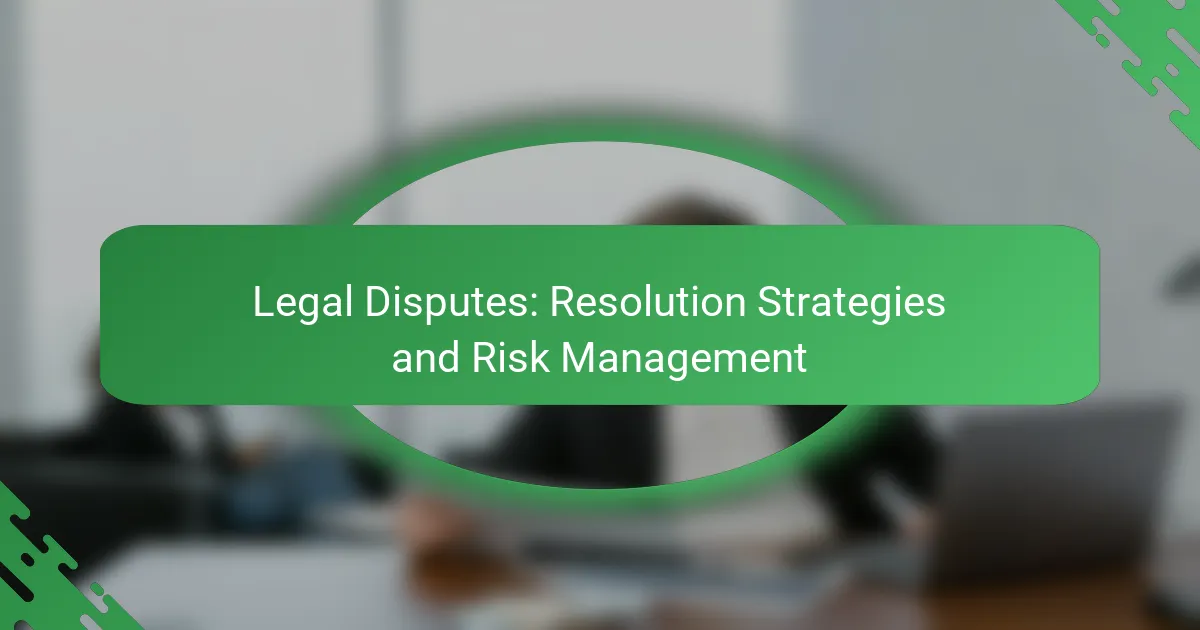Legal disputes can arise in various contexts, necessitating effective resolution strategies such as mediation, arbitration, and litigation. Each approach has its own benefits and challenges, enabling parties to select the most suitable option for their unique situations. Additionally, proactive risk management plays a crucial role in minimizing potential disputes by addressing issues before they escalate, thereby safeguarding organizational interests and ensuring compliance with legal standards.

What are effective resolution strategies for legal disputes in the UK?
Effective resolution strategies for legal disputes in the UK include mediation, arbitration, and litigation. Each method offers distinct advantages and considerations, allowing parties to choose the best fit based on their specific circumstances and goals.
Mediation as a collaborative approach
Mediation is a voluntary process where an impartial third party helps disputing parties communicate and negotiate a mutually acceptable resolution. This approach fosters collaboration and often leads to more satisfactory outcomes for both sides.
One key advantage of mediation is its flexibility; parties can tailor the process to their needs, and it typically takes less time and costs less than litigation. However, mediation requires a willingness to compromise and may not be suitable for all disputes, particularly those involving power imbalances.
Arbitration for binding decisions
Arbitration involves a neutral arbitrator who listens to both parties and makes a binding decision. This method is often faster and less formal than court proceedings, making it an attractive option for many businesses and individuals.
In the UK, arbitration can be governed by various rules, such as the Arbitration Act 1996. Parties should consider the costs associated with arbitration, which can vary widely, and ensure they understand the implications of a binding decision, as it typically limits the ability to appeal.
Litigation for formal court proceedings
Litigation is the process of resolving disputes through the court system, resulting in a legally binding judgment. This method is often necessary for complex cases or when parties cannot reach an agreement through alternative means.
While litigation can provide a clear resolution, it is usually the most time-consuming and expensive option. Parties should be prepared for the potential costs, which can include court fees, legal representation, and other associated expenses. Additionally, litigation outcomes can be unpredictable, so it is essential to weigh the risks and benefits carefully before proceeding.

How can risk management minimize legal disputes?
Risk management can significantly reduce the likelihood of legal disputes by identifying potential issues before they escalate. By proactively addressing risks, organizations can implement strategies that protect their interests and maintain compliance with relevant laws and regulations.
Implementing compliance programs
Compliance programs are essential for ensuring that organizations adhere to legal standards and industry regulations. These programs typically include training, monitoring, and reporting mechanisms that help identify and rectify compliance issues early. For example, a company might establish a code of conduct that outlines acceptable behaviors and provides employees with resources to report violations.
To be effective, compliance programs should be tailored to the specific legal environment of the organization, considering local laws and regulations. Regular updates and training sessions can help keep employees informed about changes in compliance requirements, reducing the risk of legal disputes.
Conducting regular risk assessments
Regular risk assessments help organizations identify vulnerabilities that could lead to legal disputes. These assessments should evaluate various factors, including operational processes, contractual obligations, and regulatory requirements. By conducting these evaluations at least annually, organizations can stay ahead of potential issues.
When performing a risk assessment, consider using a structured approach that includes identifying risks, analyzing their potential impact, and developing mitigation strategies. For instance, a business might assess its contracts with suppliers to ensure they include clear terms and conditions, minimizing the chance of misunderstandings that could result in disputes.

What are the costs associated with legal dispute resolution?
The costs of legal dispute resolution can vary widely based on the method chosen, the complexity of the case, and the jurisdiction. Key expenses include attorney fees, court costs, and any additional fees related to mediation or arbitration.
Average mediation costs in the UK
Mediation costs in the UK typically range from £100 to £500 per hour, depending on the mediator’s experience and the complexity of the dispute. A full mediation session can last several hours, leading to total costs between £500 and £2,000 for a single session.
Parties may also incur additional costs for preparation and follow-up sessions. It’s essential to consider these factors when budgeting for mediation, as some mediators may offer fixed fees for specific cases.
Litigation expenses breakdown
Litigation expenses can be substantial, often exceeding £10,000 for straightforward cases and significantly more for complex disputes. Key components of litigation costs include attorney fees, court filing fees, and costs for expert witnesses.
For example, attorney fees can range from £150 to £500 per hour, while court fees may vary based on the claim amount, with higher claims incurring greater fees. It’s crucial to assess potential litigation costs early in the process to avoid unexpected financial burdens.

What role does documentation play in dispute resolution?
Documentation is crucial in dispute resolution as it provides a clear record of agreements, communications, and actions taken by parties involved. Proper documentation can help clarify responsibilities, support claims, and facilitate negotiations, ultimately leading to more effective resolutions.
Importance of contracts and agreements
Contracts and agreements serve as the foundation of any business relationship, outlining the expectations and obligations of each party. They should be detailed and specific, covering aspects such as payment terms, deliverables, and timelines to minimize misunderstandings.
When disputes arise, having a well-drafted contract can significantly influence the outcome. It serves as a reference point for negotiations and can be used in legal proceedings to demonstrate compliance or breach of terms.
Maintaining communication records
Keeping detailed records of all communications related to a dispute is essential for effective resolution. This includes emails, meeting notes, and any correspondence that may clarify intentions or agreements made during discussions.
These records can provide evidence of attempts to resolve issues amicably and can be critical if the dispute escalates to legal action. Regularly updating and organizing these documents can help ensure that all relevant information is readily available when needed.

How to choose the right legal representation?
Choosing the right legal representation involves assessing a lawyer’s expertise, experience, and client feedback to ensure they align with your specific legal needs. A well-suited attorney can significantly impact the outcome of your legal dispute.
Evaluating expertise in specific legal areas
When selecting legal representation, prioritize attorneys who specialize in the area relevant to your case, such as family law, criminal defense, or corporate law. Specialized lawyers are more likely to be familiar with the nuances of relevant laws and regulations, which can enhance your chances of a favorable outcome.
Consider their track record in similar cases. For instance, if you are dealing with a business dispute, look for a lawyer who has successfully handled cases involving similar contracts or industry standards. This expertise can provide a strategic advantage in negotiations or court proceedings.
Considering client testimonials and reviews
Client testimonials and reviews can offer valuable insights into a lawyer’s effectiveness and approach. Look for feedback on their communication skills, responsiveness, and overall satisfaction from previous clients. This information can help you gauge how well they might handle your case.
Utilize online platforms and legal directories to read reviews, but also consider asking for references directly from the attorney. Speaking with former clients can provide a clearer picture of what to expect and help you avoid potential pitfalls in your legal representation choice.

What are the common pitfalls in legal dispute management?
Common pitfalls in legal dispute management include neglecting early intervention and failing to understand legal obligations. Addressing these issues promptly can significantly reduce risks and improve outcomes.
Neglecting early intervention
Neglecting early intervention can escalate disputes, leading to higher costs and prolonged resolutions. Engaging in proactive communication and negotiation at the first signs of conflict often prevents issues from becoming more complex.
For instance, if a contractual disagreement arises, addressing it within the first few weeks can save both parties time and resources. Consider setting up regular check-ins to identify potential issues early.
Failing to understand legal obligations
Failing to understand legal obligations can result in unintentional breaches and costly penalties. It is crucial to thoroughly review contracts and relevant regulations to ensure compliance and avoid disputes.
For example, businesses should familiarize themselves with local labor laws to prevent employment-related disputes. Regular training sessions for staff on legal responsibilities can also mitigate risks associated with misunderstandings.

How can businesses in London prepare for potential disputes?
Businesses in London can prepare for potential disputes by implementing proactive risk management strategies and establishing clear communication channels. This involves understanding common legal issues, maintaining thorough documentation, and considering alternative dispute resolution methods.
Understanding common legal issues
Businesses should familiarize themselves with common legal issues that may arise in their industry, such as contract disputes, employment issues, and regulatory compliance. Knowing these potential pitfalls allows businesses to take preventive measures and mitigate risks effectively.
For instance, ensuring that contracts are clear and comprehensive can help avoid misunderstandings that lead to disputes. Regular training on employment laws can also reduce the likelihood of conflicts with employees.
Maintaining thorough documentation
Keeping detailed records is crucial for any business to defend against disputes. This includes contracts, correspondence, invoices, and meeting notes. Well-organized documentation can serve as vital evidence in case of a legal challenge.
Implementing a systematic approach to documentation, such as using digital tools for tracking communications and agreements, can streamline this process. Regular audits of documentation practices can help identify gaps and improve overall compliance.
Considering alternative dispute resolution methods
Alternative dispute resolution (ADR) methods, such as mediation and arbitration, can provide businesses with effective ways to resolve conflicts without resorting to litigation. These methods are often quicker and less costly than traditional court proceedings.
Businesses should consider including ADR clauses in contracts to encourage resolution outside of court. This proactive approach can save time and resources while maintaining business relationships. Familiarizing staff with ADR processes can also enhance readiness when disputes arise.
